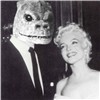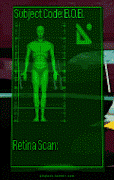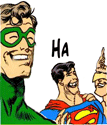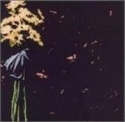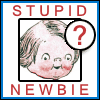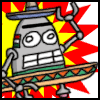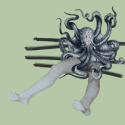|
Trig Discipline posted:Yeah, Pushing Ice and House of Suns were the first things that came to my mind. There's also one of the Culture books that takes place inside of a hollow world and is pretty cool. Can't remember which one it is though. The book you are thinking of is Matter. Not everyone liked it, but its my favorite Culture novel.
|
|
|
|

|
| # ? May 10, 2024 00:16 |
|
There's a cool one called Macrolife by George Zebrowski which is about living inside hollowed-out asteroids, and eventually dominating the galaxy in them. It's been ages since I read it but I remember liking it. He wrote another one in the same universe called Cave Of Stars which I didn't like as much. Don't remember the story. Right now I'm finishing off the Starfisher Trilogy by Glen Cook. It's really good, and as the series develops it gets better and better. The characters are interesting and play their roles well and the story gets more exciting as the series goes along. The first book is about a feud between rival mercenary groups in the future. They come together in a war that brings to a head other problems with a slave-owning race called the Sangaree, and precipitates the actions of the 2nd and 3rd books. The 2nd and 3rd are about a pair of Confederation agents and their efforts to infiltrate the human culture that harvest the by-products of huge space-faring creatures that are like enormous, evanescent dragons. By the 3rd book they're dealing with a secret and deadly fortress at the end of the galaxy known as Star's End, and the secrets it holds regarding the future of life in the galaxy. Anyway they are great, hopefully nothing in my cost constitutes a spoiler.
|
|
|
|
WarLocke posted:I'm trying to remember a book I read at one point that featured a Matrioshka Brain, I want to say it was one of the Culture books but I honestly don't remember. Stross's Palimpsest possibly outdoes Accelerando in this department. Could've sworn it was online at one point too, but can't find it now. e: I'd also suggest Watt's Blindsight, free here. Warning: Watt's works are reliably depressing. As one reviewer put it, "Whenever I find my will to live becoming too strong, I read Peter Watts." coffeetable fucked around with this message at 20:32 on Dec 23, 2010 |
|
|
|
Internet Wizard posted:What, no love for R. M. Meluch's Tour of the Merrimack series? It's about Captain John Farragut, the raddest space captain of the raddest space ship to ever do rad stuff in space. It's got Space Romans, horrible Space Monsters, and totally awesome American Space Marines. gently caress you for reminding me of that book. It was terrible, but not in a good way. Ridiculous characters, dialogue, plot, everything was bad. On the other hand, if THAT got published, maybe there is hope for my terrible novel.
|
|
|
|
Eunabomber posted:gently caress you for reminding me of that book. It was terrible, but not in a good way. Ridiculous characters, dialogue, plot, everything was bad. Yeah, I just tried it after reading the recommendation and my advice to everyone is to steer clear. I couldn't finish it. If you want stuff in that vein go for David Drake's RCN stuff, it's not great but it's a lot better.
|
|
|
|
WarLocke posted:I'm trying to remember a book I read at one point that featured a Matrioshka Brain, I want to say it was one of the Culture books but I honestly don't remember. The Requiem for Homo Sapiens series by David Zindell deals with this sort of post-Singularity mega-engineering pretty head on, being a sort of high-fantasy/space opera hybrid dealing with a far future humanity & god-like technological entities that span entire planets, solar systems & star clusters. Newtie fucked around with this message at 15:17 on Dec 25, 2010 |
|
|
|
I don't read much space opera, as I always feel a little dirty after having done so....ashamed, even. But, I do want to toss out a recommendation to follow the few that I've seen for Timothy Zahn's Conquerors' Trilogy. I just started the second one, and really like where he took it. The twist became pretty obvious in the first novel, but seeing what I suspected confirmed without just smacking the reader over the face with it, was a nice change compared to most space opera's 'tell a thousand times, show maybe once technique'.
|
|
|
|
I don't think I saw it mentioned anywhere, so I feel I should toss out Voyage of the Star Wolf by David Gerrold as a recommendation. It's basically a more hardcore Star Trek. I believe there's two sequels that I'm too lazy to look up the names of and a prequel that I don't feel like looking up either. I read all of them at some point and I remember them being pretty awesome, but it's been years since I read them so I can't really describe them any better than " a more hardcore Star Trek."
|
|
|
Sojourn posted:I don't think I saw it mentioned anywhere, so I feel I should toss out Voyage of the Star Wolf by David Gerrold as a recommendation. Look up Voyage of the Space Beagle by A.E. Van Vogt. It's sort of pre-Star Trek Star Trek (written in the 1950's) Hieronymous Alloy fucked around with this message at 17:03 on Dec 31, 2010 |
|
|
|
|
Hieronymous Alloy posted:Look up Voyage of the Space Beagle by A.E. Van Vogt. It's sort of pre-Star Trek Star Trek (written in the 1950's) I felt like a heel once I figured out what all the constant Beagle references in sci-fi meant. http://www.aboutdarwin.com/voyage/voyage03.html
|
|
|
|
Sojourn posted:I don't think I saw it mentioned anywhere, so I feel I should toss out Voyage of the Star Wolf by David Gerrold as a recommendation. Agreed. You should check out David's "Yesterday's CHildren" -- it was the ORIGINAL book that Star Wolf turned into (and was, itself, a book that developed out of a failed script for Trek). Very interesting read, and my favorite thing of everything David ever wrote. For a while a few years ago, "Star Wolf" was being worked on as a possible TV series. I was seriously bummed that it didn't pan out.
|
|
|
|
Magnificent Quiver posted:I felt like a heel once I figured out what all the constant Beagle references in sci-fi meant. A lot of spaceships get named after famous surface ships. A lot of surface ships got named after other, earlier surface ships. Challenger, Enterprise, Constitution, etc. etc. etc.
|
|
|
|
Over winter break I read Larry Niven's latest short story/essay collection, Stars and Gods, and...I think I no longer feel the need to follow any more of his releases. Ignoring the fact that half the collection is excerpts from books he published over a decade ago, it just lacked the narrative energy and interesting concepts that his old works had. The only passable parts were the two Man-Kzin War stories, and even those were just kind of blah. I noticed two or three times that he wrote the exact same jokes in multiple stories. And I knew he was a libertarian, but I thought he was kind of on the level and left all the serious nutty ramblings to Jerry Pournelle, but every other paragraph in it had to mention how terrible urban blacks or, or how environmentalists are traitors, or how the space program would be amazing if private companies ran it, or how Ronald Reagan was the greatest figure in the history of the world (literally, a Kzin names himself after "the greatest warrior of Earth's past" - 'Ronreagan'). One story was about how IRS agents literally deserve to be murdered, and another was about a president who allows Washington to be nuked as his way of killing Congress to punish them for canceling SDI. But on the other hand I just started reading Paragaea by Chris Roberson (who's the head of MonkeyBrain Books, if anyone is familiar with them). It's great so far. It really reminds me of Michael Moorcock in how it deconstructs/reimagines for modern day sensibilities and scientific views the Burroughsian sword and planet genre.
|
|
|
|
Chairman Capone posted:Over winter break I read Larry Niven's latest short story/essay collection, Stars and Gods, and...I think I no longer feel the need to follow any more of his releases. Ignoring the fact that half the collection is excerpts from books he published over a decade ago, it just lacked the narrative energy and interesting concepts that his old works had. The only passable parts were the two Man-Kzin War stories, and even those were just kind of blah. I noticed two or three times that he wrote the exact same jokes in multiple stories. And I knew he was a libertarian, but I thought he was kind of on the level and left all the serious nutty ramblings to Jerry Pournelle, but every other paragraph in it had to mention how terrible urban blacks or, or how environmentalists are traitors, or how the space program would be amazing if private companies ran it, or how Ronald Reagan was the greatest figure in the history of the world (literally, a Kzin names himself after "the greatest warrior of Earth's past" - 'Ronreagan'). One story was about how IRS agents literally deserve to be murdered, and another was about a president who allows Washington to be nuked as his way of killing Congress to punish them for canceling SDI. Although being one of the resident Niven That said I've never seen any of the horrors you mentioned after "libertarianism" so I guess I've been sheltered. That might be the only book I don't get of his, despite my complete-collector mentality. On behalf of Niven fandom, I apologize for you having to suffer through that crap.
|
|
|
|
ThaGhettoJew posted:Although being one of the resident Niven Believe me, I'm there with you - I'm a longtime Niven fan, for around a decade or so my two absolute favorite books were Ringworld and Mote in God's Eye. I even thought the later Ringworld books and his Fleet of Worlds co-authored books were decent enough, although I think I would classify the Rainbow Mars novella as the last really great thing he did. But like I said, I've known he was a libertarian for a long time (converted by Pournelle) but the only times I've seen evidence of it before in his works was in stuff he co-authored with Pournelle (The Burning City, Fallen Angels...ugh) so I assumed that those parts came from Pournelle. This was the first of Niven's solo work where it really came out in force, and it kind of shocked me. Maybe Niven's becoming cranky in his old age? So like I said, I doubt I'm going to be reading any future releases of his, but whenever I get a hankering I can always go back to The Integral Trees or Neutron Star and think back on fonder memories of him.
|
|
|
|
Part of the thing is personal pique--Niven and Pournelle and a bunch of other mil-sf authors were invited to comment on SDI, and came up with some pretty crazy poo poo (basically, all the stuff in "Footfall" was their SDI proposals). They got told "thanks, but that's about twenty years beyond modern technology; don't call us, we'll call you" and never really got over that sense of rejection.
|
|
|
|
Really? That's really funny. I knew Pournelle got approached to do stuff for SDI because he's mentioned it in a few things I read, but each time it was basically him saying "I came up with SDI and sold it to Reagan almost entirely on my own." Which always seemed like BS to me but I didn't realize it was that much BS.
|
|
|
|
Chairman Capone posted:Really? That's really funny. I knew Pournelle got approached to do stuff for SDI because he's mentioned it in a few things I read, but each time it was basically him saying "I came up with SDI and sold it to Reagan almost entirely on my own." Which always seemed like BS to me but I didn't realize it was that much BS. Since he and several other scifi writers have actually been called to spitball futuretech problems to Pentagon types (Sigma, etc.), it's probably not total BS. Wikipedia cites an Adam Curtis documentary called "Pandora's Box" where Niven is interviewed about the SDI thing. Seeing the various other out-there things Reagan managed to believe I wouldn't doubt it too hard.
|
|
|
|
I love the books that Niven and Pournell do together. Lucifer's Hammer, Rama 2 and 3, The Mote in God's Eye.. though the second Mote book was crap. There's a book that I've been trying to find for years, and I just can't remember the title, or find anything like it. I don't remember the author, but the title of the book had something to do with Thread. String theory, thread, something like that. The basic premise was that this huge colony ship was sent out at sub-light speeds, and over time the colonists onboard had split into several groups with their own ethnic features, ideology, and beliefs. I don't think that any of them remembered that they were on a colony ship, but I could be wrong there. Started reading it, really enjoyed it, but lost my copy before I finished it.
|
|
|
|
BaronSamhedi posted:I love the books that Niven and Pournell do together. Lucifer's Hammer, Rama 2 and 3, The Mote in God's Eye.. though the second Mote book was crap. Is it Ring by Stephen Baxter?
|
|
|
BaronSamhedi posted:
Possibly "Universe" by Heinlein. http://en.wikipedia.org/wiki/Orphans_of_the_Sky
|
|
|
|
|
Bishop Beo posted:Is it Ring by Stephen Baxter? Ring is it! Thank you. I'd forgotten about the photino birds. Now to go about finding a copy and see if I still like it. I'll have to check out that Heinlein book that was mentioned, too. I know there are plenty of people that don't like Heinlein, especially his later work (which, granted, did suffer as he aged), but he's one of my favorite scifi authors. Even his bad books are usually fun to read. BaronSamhedi fucked around with this message at 16:08 on Jan 29, 2011 |
|
|
|
BaronSamhedi posted:I love the books that Niven and Pournell do together. Lucifer's Hammer, Rama 2 and 3, The Mote in God's Eye.. though the second Mote book was crap.
|
|
|
|
Sombrerotron posted:Unless there's other Rama books out there of which I'm unaware, I think you're confusing Niven and Pournell with Arthur C. Clarke and Gentry Lee (also, they were bad sequels, though not quite as bad as the stupendously stupid Rama Revealed). drat, you're right. It's been a while since I read those. I didn't find them bad sequels at all, though. I quite enjoyed them. I think that relates to why I got them mixed up. Clarke and Niven both have very dry writing styles, and (in my opinion) while they both have excellent ideas and settings, they don't write characters that can really be engaged with. Bringing on another author to their projects in both cases resulted in a mix of excellent ideas and decent characters to go with them.
|
|
|
|
BaronSamhedi posted:drat, you're right. It's been a while since I read those. EDIT: I don't think bringing in Gentry Lee helped much with characterisation either, since the majority of characters in those books were largely two-dimensional and barely (if at all) likeable archetypes. I much preferred the general mystique of the original, which focused on the alienness of the ship, to the overly character-driven nature of the sequels anyway. Sombrerotron fucked around with this message at 16:37 on Jan 29, 2011 |
|
|
|
Ring is an excellent book, one of the best works of one of my favorite current SF authors. The entire Xeelee Sequence is required reading if you're interested in hard-scifi space opera. Also the Manifold series, although that's not strictly a series in that each book basically is set in an parallel universe with the same set of characters. I agree, Rama II was still halfway decent, although it still really irritated me how they basically used hand-waving to explain how the solar system-wide civilization of the first Rama book complete collapsed and entirely returned to Earth in the space of a decade or so. As I recall, for the Rama sequels didn't Gentry Lee basically write them entirely on his own and they're "co-written" just because Clarke let Lee use his setting?
|
|
|
|
My problem with the Rama sequels was that weird backing off of the whole setting Clarke created with "Rendezvous" which had people living all throughout the solar system. Then the second book shows up and its all "naw, everybody moved back to Earth and it basically turned into the present." I also didn't like how a lot of the story in the third book was driven by characters acting like morons.
|
|
|
|
Ebethron posted:The Engines of Light trilogy by Ken MacLeod (starts with Cosmonaut Keep)uses a similar device of a mystery built into the stellar civilisation it deals with, slowly unravelling it over three books. He's a fellow Scottish left-leaning sf writer like Banks. MacLeod can be a love him or hate him writer though, so YMMV. Personally I think he's the bees' proverbial. Smart science, good pacing, a sleetstorm of ideas and references to everything from libertarian politics, to theology, to bong addled pot-head culture, to evolutionary biology. Oh and communists in space. All his books have communists in space. Ken MacLeod has another series, known as the Fall Revolution in the US I think. I actually like that one more, especially the first book, but it's not so much 'left-leaning' as 'actually and explicitly Trotskyite' and includes a world background where an originally-US organisation brutally conquers and enslaves the UK (and the rest of the world for that matter). I have no problem with that personally, mind you, certainly makes a change from reading US libertarians. 
|
|
|
|
feedmegin posted:Ken MacLeod has another series, known as the Fall Revolution in the US I think. I actually like that one more, especially the first book, but it's not so much 'left-leaning' as 'actually and explicitly Trotskyite' and includes a world background where an originally-US organisation brutally conquers and enslaves the UK (and the rest of the world for that matter). Ken MacLeod's a breath of fresh air, and I like how he references modern computer culture in a way that doesn't seem goofy or inappropriate (Microsoft's legacy code persisting hundreds of years into the future). While I enjoyed the Engines of Light series a lot, I thought Newton's Wake was pretty mediocre. Are any of his other one-off novels good?
|
|
|
|
Vertigus posted:Ken MacLeod's a breath of fresh air, and I like how he references modern computer culture in a way that doesn't seem goofy or inappropriate (Microsoft's legacy code persisting hundreds of years into the future). My favorite example of this is Vinge's comment that mankind counts time as the number of seconds since the first time they landed on their homeworld's primary satellite, but off by a bit.
|
|
|
|
pseudorandom name posted:My favorite example of this is Vinge's comment that mankind counts time as the number of seconds since the first time they landed on their homeworld's primary satellite, but off by a bit.
|
|
|
|
The moon landing was 20:17:40 20 July 1969 UTC, the Unix epoch counts from 00:00:00 1 January 1970 UTC. It's only a difference of 14.18 megaseconds.
|
|
|
|
Oh I'm glad this thread is still around, I thought it disappeared. I've been reading a bunch of sci-fi lately and am really getting into it, thanks to discovering the Mass Effect games last year. So lately I've read: Embassytown by China Miιville - which is really goddamn good and everyone should read it when it comes out in May! Revelation Space by Alastair Reynolds (and I am now partway through Chasm City) Ringworld and The Draco Tavern by Larry Niven Old Man's War by John Scalzi (I've bought the second book, gonna read that soon) Sundiver (and I've got the next book, Startide Rising, gonna read that soon too) the first Mass Effect novel (plus I've bought the rest because I'm a big nerd for this game) Blindsight by Peter Watts I've enjoyed them all, some have been dumb entertainment whereas others have been utterly mindblowing and are probably now among my favourite books. I can't believe it took me this long to get into sci-fi! Throughout my teenage years the only vaguely space-opera books I read were some Asimov & Clarke short stories (not many), and Ender's Game and a few of its sequels. ----- Here's my reading list for the indeterminate future (I read slowly): WANT TO READ NOW, RIGHT NOW, FUUUUCK The rest of the Revelation Space series and its short stories/novellas, plus House of Suns The rest of the Uplift series Dune trilogy The Culture novels and other Iain M. Banks stuff A Fire Upon the Deep and A Deepness in the Sky Red Mars, Green Mars, Blue Mars STUFF I'LL GET AROUND TO EVENTUALLY A bunch of anthologies I've picked up (The New Space Opera 1 & 2, Engineering Infinity, others) The Saga of Seven Suns The Foundation Trilogy Commonwealth Saga and the Void Trilogy The Xeelee Saga (I bought the omnibus) Eon & Eternity Hyperion & sequel Seeds of Earth by Michael Cobley, and its two sequels (Humanity's Fire trilogy I think it's called) The Mote in God's Eye by Niven Marrow by Robert Reed Bruce McAllister short story collection I got years ago The Thrawn Trilogy (Star Wars :B) That's 68 books. Uggggghhh and this is only a fraction of my reading list which also includes a bunch of gay fiction, YA, literature, biographies, history and science books. drat my honours thesis taking up all my time 
Hedrigall fucked around with this message at 14:48 on Apr 6, 2011 |
|
|
|
Blindsight was awesome, and I think it's one of my favorite books just because of how bleak it is and how truly aliens the aliens are. The ending is a bit melodramatic, but I remember going If you liked Blindsight, I think you'll like A Fire on the Deep / A Deepness in the Sky (though it's not space opera, per say, also try Rainbows End by Vernor Vinge). I just finished Surface Detail by Ian M. Banks and, though he writes huge tomes, I can't help but think of him as 'light reading', mostly because of his light conversational style and how his stories don't try to leave you staring blankly at the opposite wall at some deep revelation. I'd say skip the Saga of the Seven Suns though -- they were good for the first two or three, but after that it went completely into some half-baked sexy theory of the elements.
|
|
|
|
Yes! I am so glad this thread exists. I basically only read Space Opera and hard SF. Right now I'm reading The Reality Dysfunction by Peter F Hamilton, which is pretty good, epic space opera. It's 1,000 pages though and in my opinion does NOT need to be that long. It's one of those books that gets you excited at the beginning and then just ends up murky and slow. I agree about Iain M Banks, but he doesn't always have to be lighter reading -- Excession was pretty complicated and awesome at times with the ship minds, and as that was the first book of his that I read, I expected the rest of his to be like that too. I wish they were. I kind of LIKE it when books leave me staring blankly into space!
|
|
|
|
aliceamadee posted:Yes! I am so glad this thread exists. I basically only read Space Opera and hard SF.  a bit for instance), the deus ex machina where it seems he kind of let things get out of hand too much for a realistic cleanup, and, of course, the "I hate this author because he wants to be the badass cool space captain banging every chick he see" stuff which goons love to bring up over and over. a bit for instance), the deus ex machina where it seems he kind of let things get out of hand too much for a realistic cleanup, and, of course, the "I hate this author because he wants to be the badass cool space captain banging every chick he see" stuff which goons love to bring up over and over.I'd recommend Fallen Dragon for one of his books that's not slow (although it does have plenty of author-writing-himself-into-banging-an-underage-cheerleader stuff, if you really want to put that issue into every book you read, goons.)
|
|
|
|
My kindle informs me that I am 93% through the book. I think it's just the last few hundred pages of slogging through the planet that is getting to me. I don't mind the space captain banging everyone he sees- I think it's a kind of funny take on an old character trope, and I found other characters comment on it in a funny way. Some of it annoyed me, but I've seen far worse in other books. One thing that I like about the book is that there are female characters who just happen to be female without any reason for them to be (they're not the one token strong woman, they're not the sex symbol, they're not the best buddy) which you rarely see in any SF.
|
|
|
|
Has anyone read The Dark Beyond The Stars by Frank M. Robinson or Earth Made Of Glass by John Barnes? I haven't read anything by either of them, but picked up the books used and they look intriguing.
|
|
|
|
aliceamadee posted:Has anyone read... Earth Made Of Glass by John Barnes? I haven't read anything by either of them, but picked up the books used and they look intriguing. I like John Barnes' Thousand Cultures series, but you should note that Earth Made of Glass is the sequel to the first book, A Million Open Doors. Doors introduces the two cultures (and the books' background setting) that Giraut and Margaret come from, and Glass comes in not long after the first one. I prefer his Century Next Door (Orbital Resonance, et al.) series because of the nifty meme thought-virus conceit, but as long as you don't mind a touch of tragic melodrama the Thousand Cultures stories have some great superspy and politics-in-strange-cultures stuff. They remind me a lot of the Frederick Pohl Heechee books for several thematic reasons, only with less space ships and science.
|
|
|
|

|
| # ? May 10, 2024 00:16 |
|
aliceamadee posted:Has anyone read The Dark Beyond The Stars by Frank M. Robinson or Earth Made Of Glass by John Barnes? I haven't read anything by either of them, but picked up the books used and they look intriguing. The Dark Beyond the Stars is a really good and depressing generation ship story that I liked a lot. I'd pair it up with Ship of Fools by Richard Paul Russo which is another story in the same vein.
|
|
|


